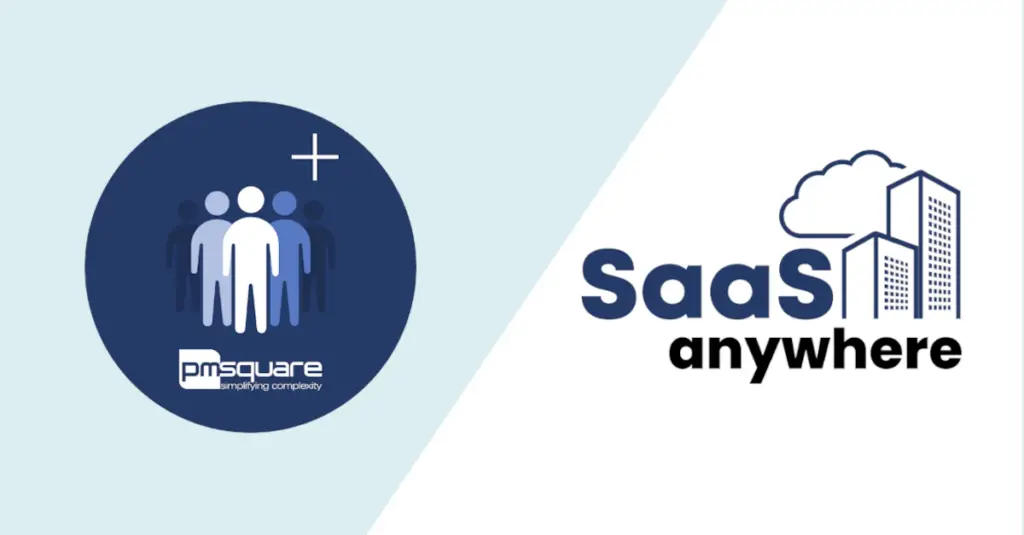
November 17, 2025
Get the Best AI Solution for
Your Business Today!
When business leaders hear Artificial Intelligence, their minds often jump to bold innovations and large-scale change, like fully autonomous supply chains or generative AI rewriting entire business models. While this vision of AI in business is exciting, it often overshadows a far more immediate and accessible opportunity – the simple, practical AI applications that can deliver tangible value today.
Many organizations are so focused on the moonshot that they miss the incremental, high-impact wins right in front of them. The truth is, AI is already deeply embedded in our personal lives. It’s in the Netflix recommendations that know what you want to watch, the Spotify suggestions for your next favorite artist, and the real-time fraud alerts from your bank.
The real competitive edge, especially for enterprise and mid-sized businesses, comes from applying this same everyday AI to your internal operations. It’s about moving from “What could AI do for us?” to “What should AI do for us?”
The answer, it turns out, is a lot. These practical AI tools aren’t about replacing humans; they are about augmenting your teams, automating low-value tasks, and unlocking data insights to make everyone more effective.
Let’s explore some of these powerful, everyday business use cases for AI, broken down by the departments they’re quietly transforming.
Table of Contents
Marketing: Beyond Personalization to Prediction
Marketing has long used data, but AI takes it to a new level. Instead of just segmenting audiences, AI can predict their behavior.
- Hyper-Personalization at Scale: We’ve all seen Amazon’s “customers who bought this also bought” feature. That’s a classic, practical AI model. Modern AI in business allows you to go further, tailoring not just product recommendations but website content, email copy, and ad creative to an individual’s browsing history and past purchases.
- Predictive Market Trend Analysis: How do you know what your customers will want six months from now? AI tools can analyze social media conversations, customer reviews, and broad market data to detect emerging trends and shifts in sentiment before they become mainstream. This allows your marketing team to be proactive, not just reactive.
Sales: Automating Admin, Coaching Champions
Your sales team’s most valuable skill is building relationships and closing deals. Yet, they often spend a significant portion of their day on data entry and administrative work.
- Predictive Lead Scoring: Not all leads are created equal. AI models can analyze historical data from your CRM to identify the specific attributes and behaviors of leads that are most likely to convert. This allows your team to stop chasing cold leads and focus their energy on high-probability prospects.
- Automated Data Entry: One of the most practical AI applications is the automation of routine tasks. New tools can automatically sync call logs, emails, and meeting notes directly into your CRM, saving your sales reps hours of manual data input every week.
- Real-Time AI Coaching: This is a use case many don’t know exists. AI tools can “listen” to sales calls (with all necessary permissions) and provide real-time suggestions to the sales rep. For example, if a customer mentions a specific competitor, the AI can instantly pull up a battle card with key talking points.
Human Resources: From Hiring to Retaining
HR is evolving from a support function to a strategic partner, and practical AI is a primary driver of that shift.
- Intelligent Resume Screening: For a popular job opening, HR managers can receive hundreds of applications. AI can scan and screen resumes, ranking candidates based on how well their experience matches the job criteria. This frees the HR team to spend their time on the most human part of the process: interviewing and engaging with top-tier candidates.
- Predictive Employee Churn: AI models can analyze factors like time since last promotion, employee survey sentiment, and workload to identify employees who may be at high risk of leaving. This gives managers a critical window to intervene, open a dialogue, and address concerns before a valuable team member resigns.
- Personalized Onboarding: Instead of a one-size-fits-all onboarding week, AI can help create personalized training paths for new hires. It can recommend specific modules, internal documents, and mentors based on the employee’s role and existing skills, getting them up to speed faster.
Finance & Operations: The Efficiency Engine
If there’s one area that runs on precision and efficiency, it’s finance and operations. This is where simple AI use cases can deliver a massive, measurable ROI.
- Intelligent Document Processing (IDP): Your finance team likely processes thousands of invoices, purchase orders, and receipts. AI-powered tools can automatically extract key information (like vendor name, invoice number, and amount) from these documents, validate it, and route it for approval. This dramatically reduces manual errors and accelerates financial close cycles.
- Advanced Fraud Detection: This is a practical AI use case we all benefit from. Banks like Barclays and companies like Mastercard use AI to analyze transaction patterns in real time to detect anomalies that signal fraud. The same technology can be applied internally to monitor expense reports or vendor payments for irregularities.
- Predictive Maintenance: For businesses with physical assets (like manufacturing or logistics), AI is a game-changer. By analyzing sensor data, AI models can predict when a piece of equipment is likely to fail before it breaks down. This allows for proactive maintenance, minimizing costly downtime.
IT and Internal Operations: Augmenting the Augmenters
Even the IT department, the traditional enablers of technology, can benefit from everyday AI.
- AIOps (AI for IT Operations): Modern IT systems are incredibly complex. AIOps tools use AI to monitor network traffic and system performance, automatically detecting anomalies that could signal a cyber threat or a system failure. This helps IT teams identify and fix problems faster.
- Smart Internal Knowledge Bases: How much time do your employees waste trying to find the right HR policy or IT setup guide? Tools like NotebookLM or internal AI agents can ingest all your company documentation. Employees can then ask questions in natural language (“How do I set up my VPN?”) and get an instant, accurate answer.
- Virtual Meeting Assistants: This is perhaps the simplest and most universally helpful practical AI. Tools like Otter.ai can join your virtual meetings to automatically transcribe the conversation, identify different speakers, and even generate a summary of key points and action items.
The Takeaway: Start Small, Win Big
The true power of AI in business for most organizations doesn’t come from a single, massive project. It comes from the cumulative impact of dozens of these simple business use cases.
These practical AI applications deliver value by making your existing teams smarter, faster, and more effective. They automate the mundane, allowing your people to focus on the high-value, strategic work that drives your business forward.
The key to unlocking this value isn’t a wait and see approach. It’s about identifying a specific, high-friction business problem and applying a targeted AI solution to solve it.
Next Steps
We hope you enjoyed reading this article and picked up a few useful insights. At PMsquare, we specialize in helping leaders build the robust data strategy and governance framework required to make these practical AI wins a reality. If this is something you are looking for, contact us today.
And be sure to subscribe to our newsletter for more PMsquare updates and insights delivered straight to your inbox.









